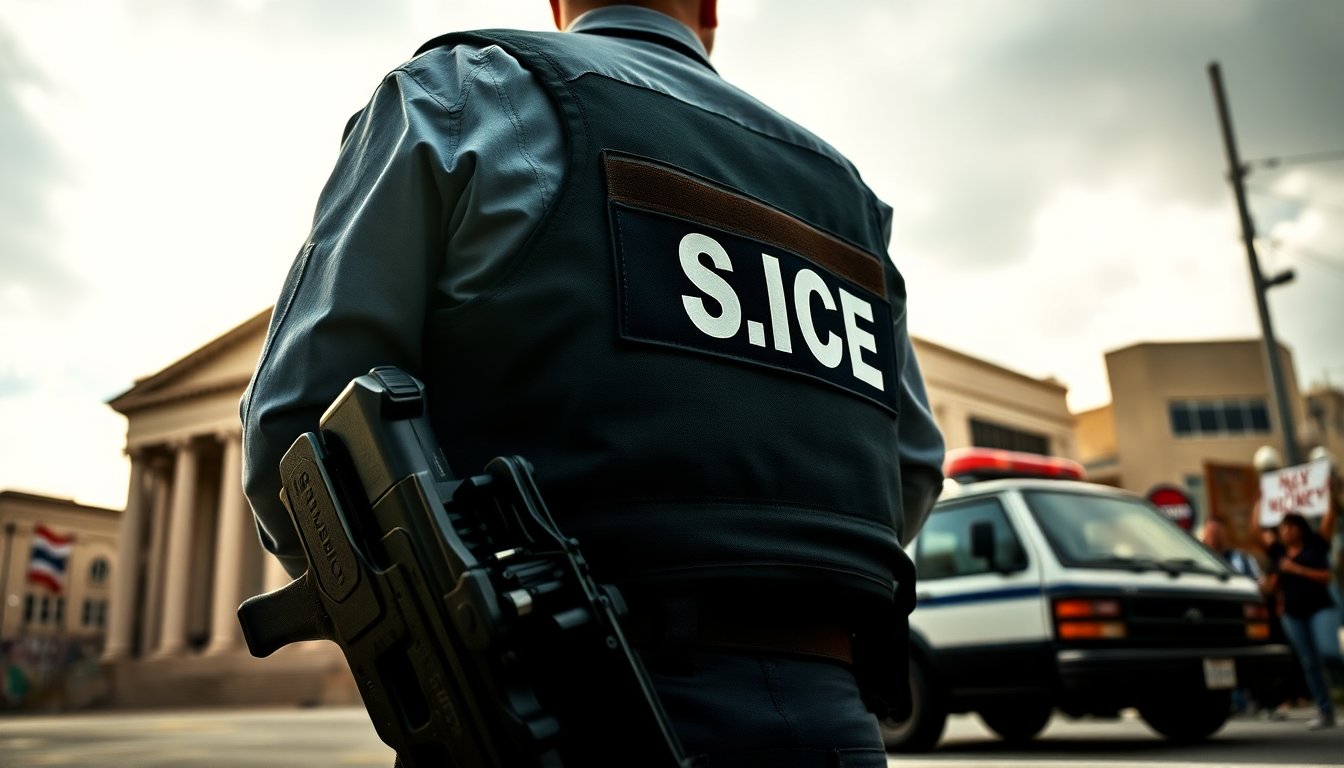Table of Contents
The landscape of U.S. immigration enforcement has become increasingly perilous for agents of the Immigration and Customs Enforcement (ICE). Recently released statistics from the Department of Homeland Security (DHS) reveal a staggering 8,000% increase in death threats against ICE officers. These alarming figures coincide with the ongoing crackdown on illegal immigration, an initiative that has drawn both fierce support and vehement opposition.
Assistant Secretary of DHS, Tricia McLaughlin, articulated the gravity of the situation, stating that ICE officers are putting their lives at risk daily. The threats include disturbing patterns of behavior such as doxxing, stalking, and even public bounties placed on their heads. This atmosphere of violence is alarming and calls for immediate attention and action.
Understanding the rise in threats
According to McLaughlin, the surge in violence is partly fueled by the rhetoric from certain political figures who have labeled ICE agents as akin to the Gestapo. She condemned this vilification and called for an end to the violence that increasingly targets law enforcement personnel. The stark reality is that these threats are not just idle chatter; they are often backed by serious intentions.
Real-life examples of threats
Recent incidents illustrate the severity of the threats faced by ICE officers. For instance, a recent arrest in Dallas, Texas, involved a Mexican national who reportedly offered a bounty of $10,000 for an ICE agent’s murder in a social media post. Such blatant calls for violence highlight the dangerous atmosphere surrounding immigration enforcement today.
Moreover, one disturbing voicemail directed at an ICE employee’s family included a chilling message, expressing hopes for the family’s misfortune and referencing the consequences faced by Nazis post-World War II. Such threats not only target the officers but extend to their loved ones, creating a climate of fear and intimidation.
The role of political rhetoric
The political landscape has undeniably contributed to the escalating tensions surrounding immigration enforcement. McLaughlin pointed to sanctuary politicians whose language and actions contribute to the hostility faced by ICE officers. By continuously painting these officials in a negative light, the potential for violence against them increases.
Calls for action and support
In response to these threats, DHS has made it clear that they will not tolerate violence against law enforcement. Secretary Kristi Noem emphasized that any assault on an officer will lead to rigorous prosecution. This uncompromising stance aims to reassure ICE personnel and their families that the government stands firmly behind them in the face of adversity.
The importance of community support for ICE officers cannot be understated. As these individuals carry out their duties, often under dangerous conditions, it is crucial that they receive backing from both the public and their governmental superiors. A united front against violence is essential for fostering a safer working environment.
The alarming rise in threats and violence against ICE officers serves as a stark reminder of the divisive nature of immigration enforcement in the U.S. The data presented by DHS is not just numbers; they represent real lives and families facing unprecedented threats. As the situation evolves, it is imperative that a collective effort is made to protect those on the front lines of immigration control.
Ultimately, addressing the root causes of this hostility, advocating for respectful dialogue, and ensuring the safety of law enforcement are essential steps toward a more secure future for both officers and the communities they serve.


